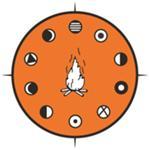Musée national de l'histoire du Québec - The First Nations cannot be erased from Quebec's history Français
WENDAKE, QC, May 7, 2024 /CNW/ - The Assembly of First Nations Quebec-Labrador (AFNQL) wants to remind the Quebec government that Quebec's history began long before the arrival of Europeans on the territory. The AFNQL is therefore reacting to the remarks made by Prime Minister Legault on April 25th, when he announced the creation of the Musée national de l'histoire du Québec by highlighting "the importance of starting with Champlain [...]".
In addition to the Prime Minister's comments, the AFNQL strongly condemns the comments of Éric Bédard, the historian in charge of the project, who went so far as to assert during interviews that "history begins with writing, and before history, there is prehistory. Perhaps the Indigenous peoples represent a bit of Quebec's prehistory."
For the AFNQL, it is vital to recognize that the territory of Quebec, just like the entire American continent, has always been and still is inhabited by a multitude of peoples, each with their own language, culture, oral tradition and complex social, political and economic structures. By excluding the First Peoples from Quebec's history in the design of the future Musée national, the Prime Minister and historian are implicitly contributing to the systematic erasure of our common past.
According to Ghislain Picard, Chief of the AFNQL: "The comments made are unacceptable. We are inseparable from this land's history and Champlain's arrival does not define Quebec. The First Nations have been present here for millennia and are profoundly attached to this territory that they occupy. To suggest that we are prehistory amounts to relegating us to a secondary role, while our contribution to the formation of modern Quebec is fundamental. This narrow nationalism does not represent Quebec's history; entire sections are being omitted for political reasons."
The creation of the Musée national de l'histoire du Québec is a perfect opportunity to highlight the past shared by First Peoples and the Quebec nation and to consolidate the ties that unite us in a spirit of reconciliation. First Peoples are part of Quebec's past, present and future.
The statements made during the announcement of the Musée national de l'histoire du Québec have painfully revived memories of Terra nullius, the Doctrine of Discovery. This doctrine, which was used in the 15th century to justify dispossession, colonization, assimilation, discrimination and violence against First Nations by Europeans, has left deep intergenerational scars.
Although Pope Francis repudiated the Doctrine of Discovery and apologized to the territory's First Peoples for the role of the Catholic Church during his visit to Canada in 2022, it caused intergenerational damage that remains to this day.
"With a view to avoiding the infliction of new harms upon the First Peoples and ensuring that they occupy their rightful place in Quebec's history, it is imperative for those responsible for the museum project to actively involve recognized Indigenous historians. This is the only way we can guarantee access for future generations to all the facets that make up our common history on the territory we share," concluded Ghislain Picard.
The Assembly of First Nations Quebec-Labrador is the regional political organization that brings together the 43 Chiefs of the First Nations in Quebec and Labrador. To find out more, visit the AFNQL website at https://apnql.com/en/.
SOURCE Assembly of First Nations of Quebec and Labrador

Mathilde Robitaille-Lefebvre, 819 852-4762, [email protected]

Share this article